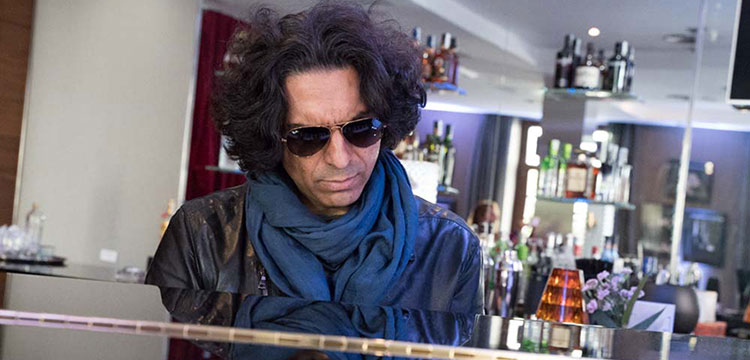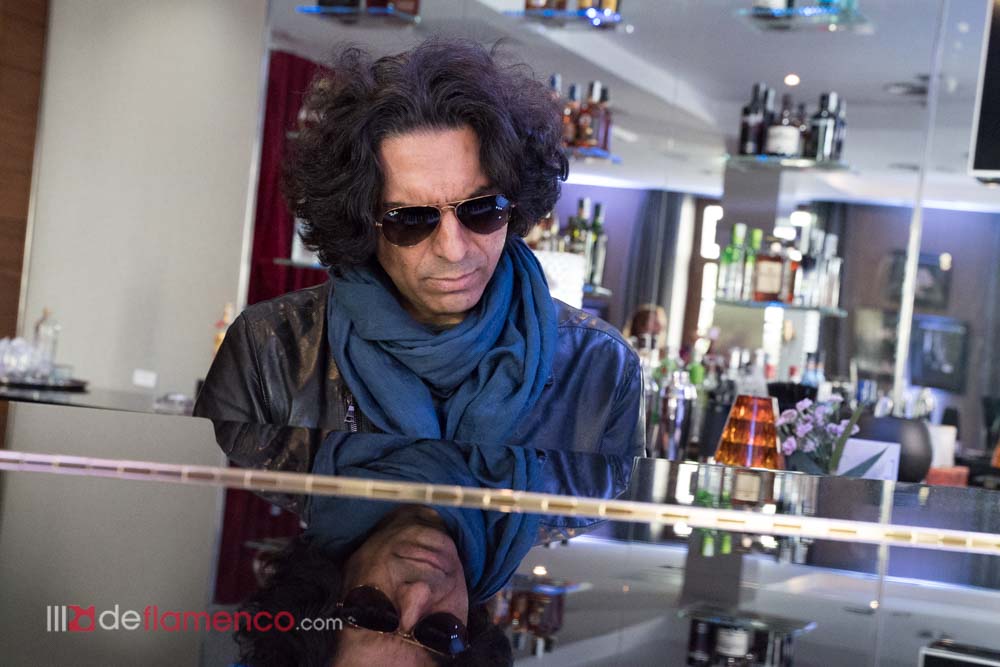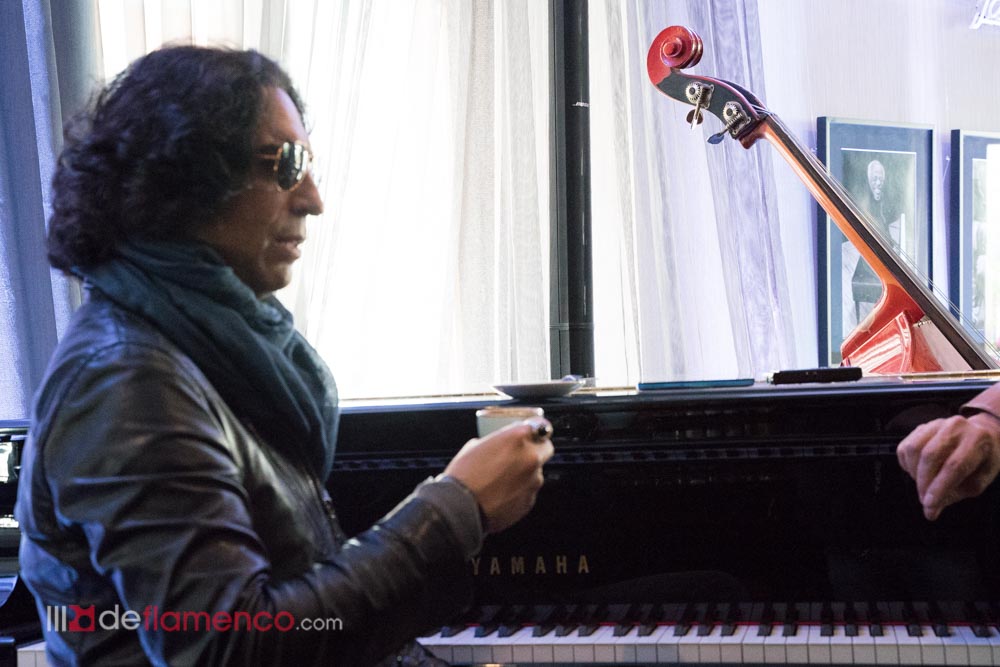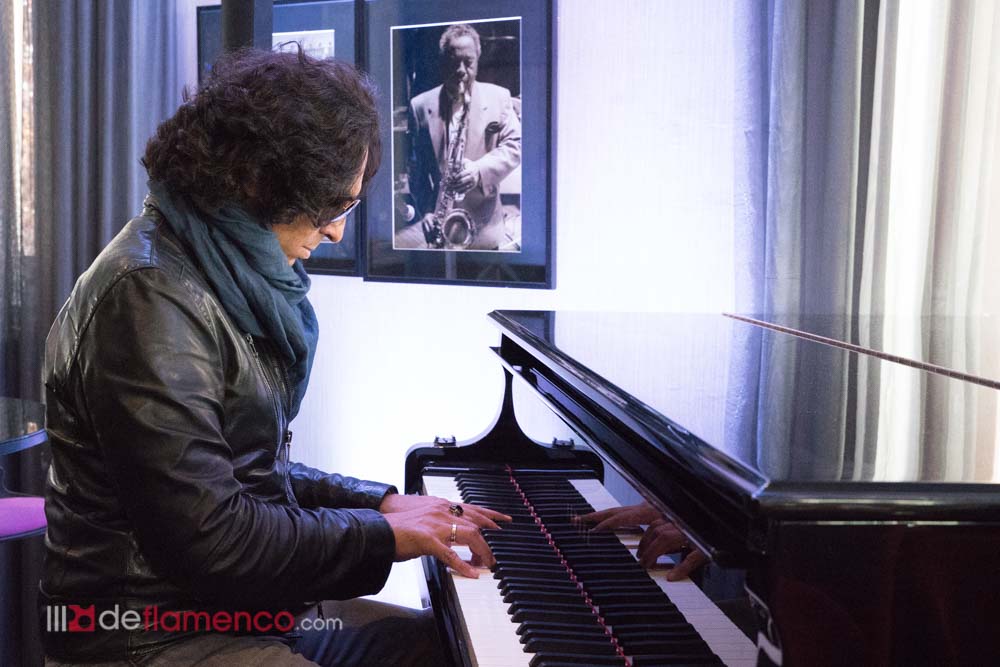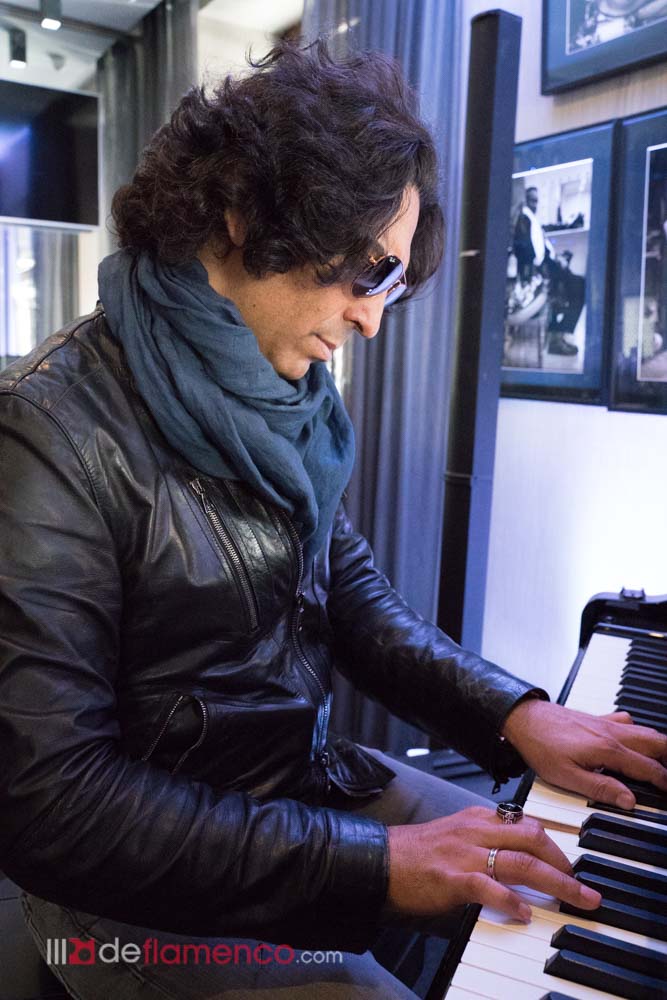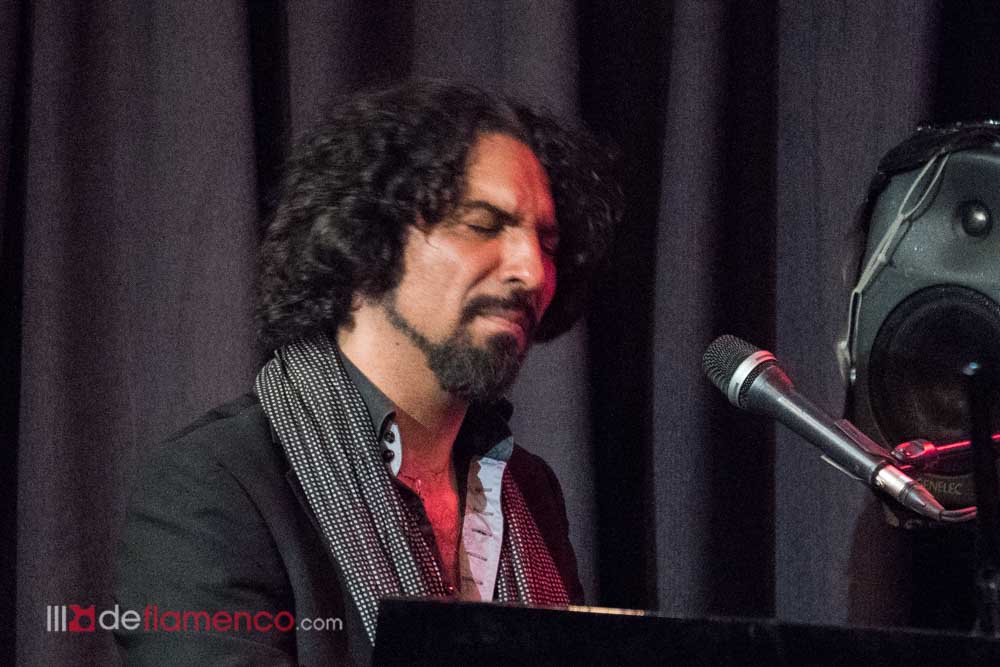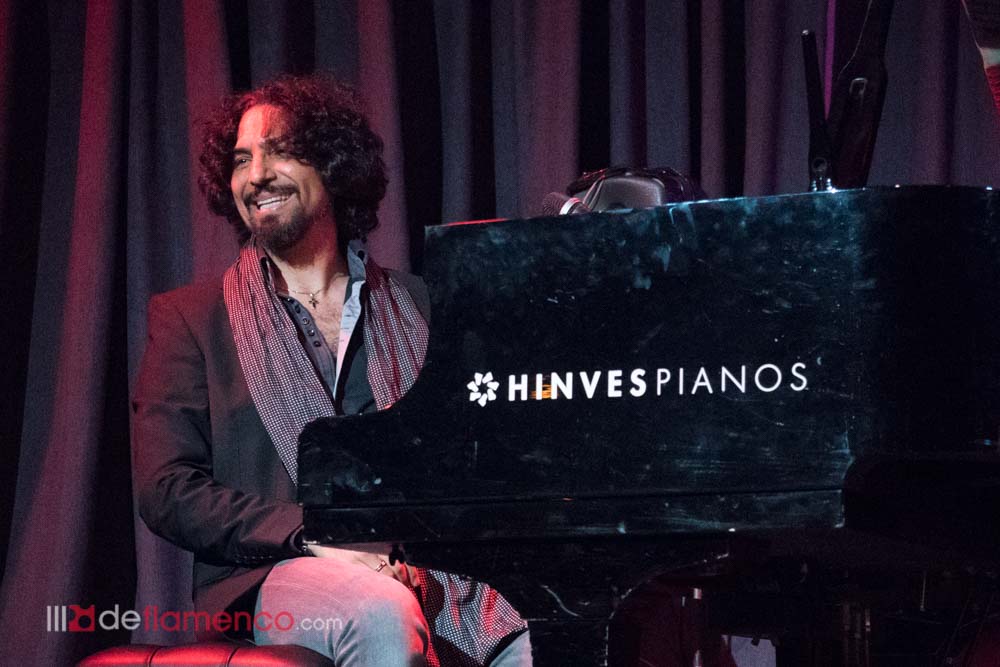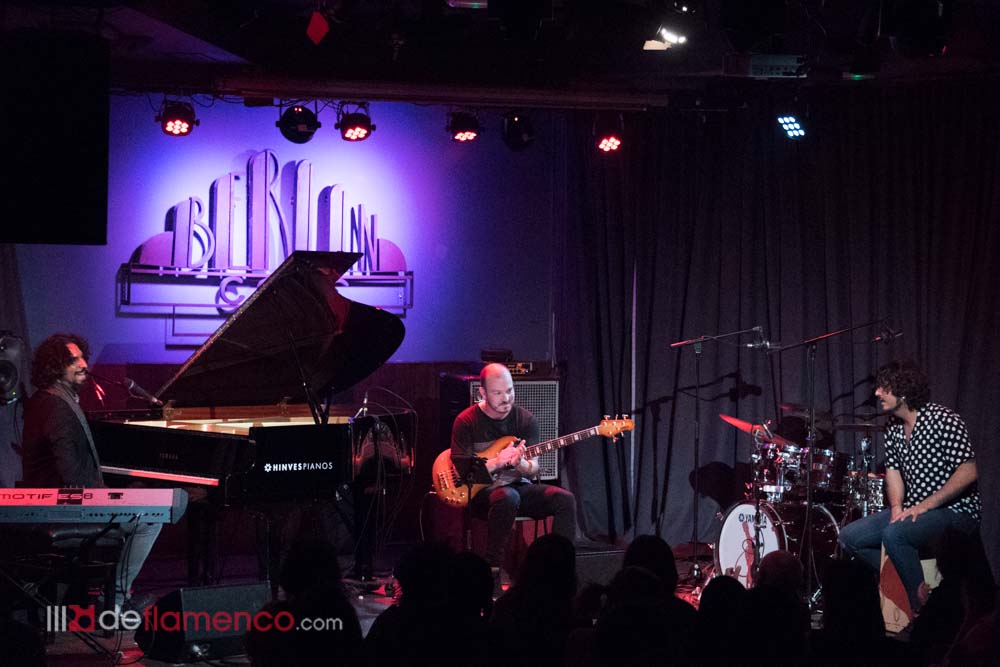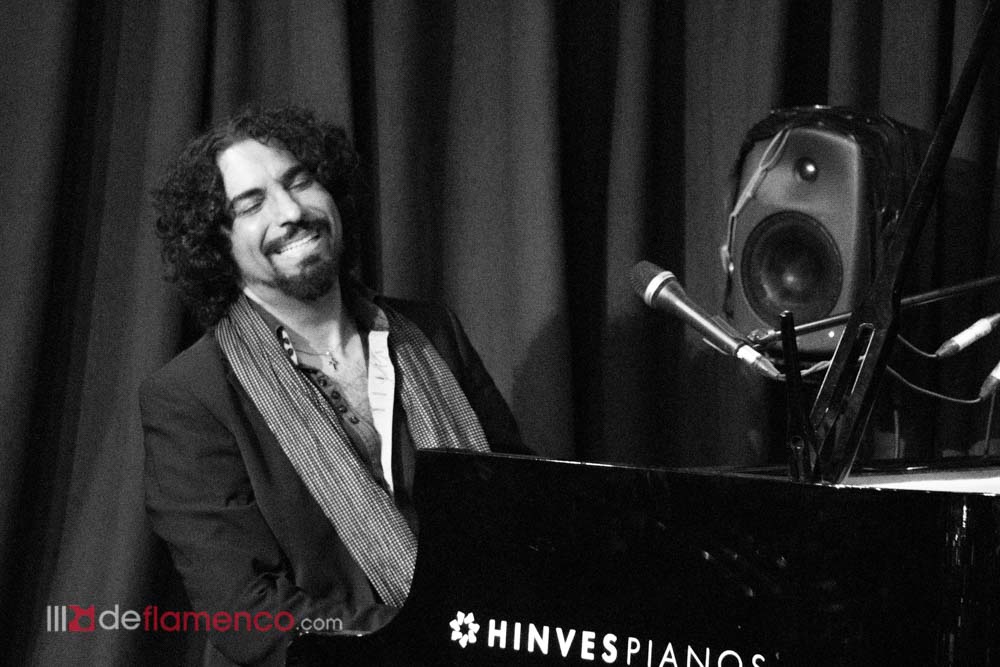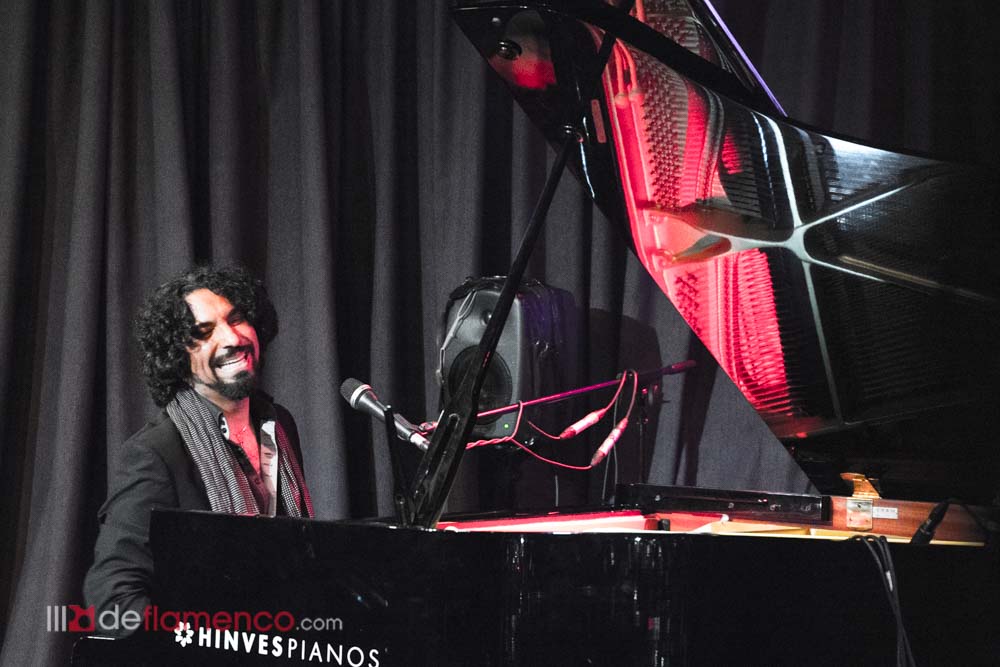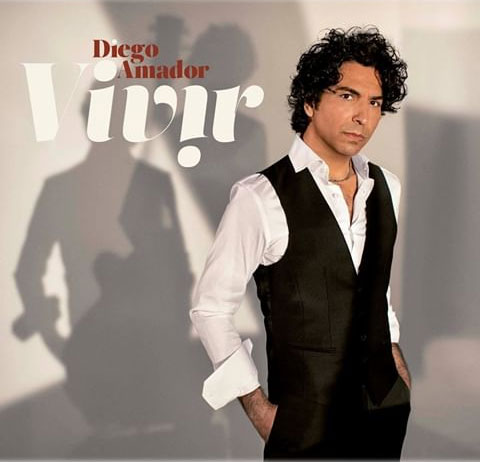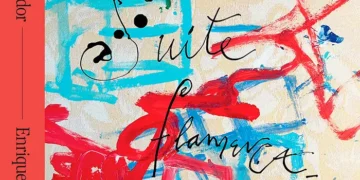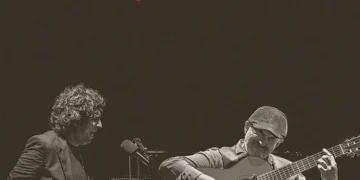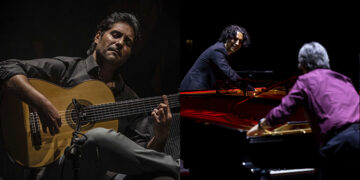Interview & photos: Rafael Manjavacas
“Vivir” is the newest work of Diego Amador, his eighth recording no less, always with the piano as the main instrument, although he’s made use of many other instruments, “I’ve lost count, I’ve play the bass, flamenco guitar, electric guitar, mandola, mandolin, drums and other percussion…but most of all for recording, it helps in composing, I measure out the arrangements with one and then another, and the piece gets built like that”. And the voice, the most difficult instrument, is the easiest for him, since it comes naturally in his Camarón style, “in the end you always fall back on the voice you were born with”.
From his beginnings, “Anticipo Flamenco”, the record made with Ricardo Pachón, he realizes most people liked it, and that’s the thing, despite there only being keyboard and voices, many others have followed that line. What he didn’t like at all, among other things, was the name they gave him, “Patita Negra”. Although he’s always admired his brothers, “I never wanted to look like them, first of all because that’s not even possible, they’re unique, and because I never wanted to look like anyone else”. He was more interested in jazz, “aside from flamenco which I carry inside, I liked the music of Miles Davis, Thelonius Monk…an odd combination of classic flamenco and jazz, if others were smoking weed, I was smoking music”.
The thing is, Diego Amador, nine years younger than Raimundo Amador, his big brother, experienced close up the musical revolution of gypsy rock featuring his brothers. He was self-taught, always via the keyboard “I was always at the keyboard, I’d fall asleep hunched over it, and my mother would take me and put me to bed”. And he continues to teach himself, “I’ve never had time to study music, always going up, down and around, composing, making use of the talent I was born with”. He did however learn American tablature, “mostly in order to be able to communicate with jazz musicians, that was enough for me”.
Diego Amador was the pioneer of the so-called “flamenco piano”, and now there are many young artists doing it, all with great academic foundation. Diego defends the concept that “there’s no such thing as flamenco piano, it’s the person playing it who’s flamenco or not, sometimes with just two notes your heart is pierced, there are many people with great technique who play very well, I settle for communication, sometimes you just don’t need so many notes”.
“Vivir”, the second single of the record, is the only new piece written by Diego, the rest are themes from major artists such as Manzanita, Juan Gabriel, Armando Manzanero, Lucho Gatica, Roberto Cantoral, Moncho “The gypsy bolero singer”, through Diego Amador’s piano as well as his voice, “I had to work my voice to put it in the right place for each piece, I sang pretty straightforward, without the high registers used in flamenco, I wanted to give the color of a flamenco voice without trying to turn the music into flamenco at all”. And putting voice to these major compositions is a challenge in itself, “I don’t pretend to sing like Lucho Gatica or Céspedes, I only wanted to put the color of my voice and my soul and interpret it differently”.
Of the chosen pieces, the best-known, “Dentro de tu Alma”, a version of a Manzanita song, “I’ve always been a fan of Manzanita’s, since I was a child, he was my friend and we shared many things”, “Vida Loca”, “La Barca”, “Debajo de la Mesa”, known in the Luis Miguel version, but which is Armando Manzanero’s.
In live performance we were able to hear some of the pieces a few days ago at the Café Berlin in Madrid, now he’s programmed for next June 7th in Madrid, once again at the Festival Suma Flamenca in the Sala Verde of the Teatros del Canal, “a more intimate show than last year’s, with my usual repertoire and some piece or other from this recording”.
And lastly, the conversation turns to expressing gratitude for the Nuevos Medios recording company, “who opened the doors for me to the world of music, to me and so many others who weren’t of interest to the big companies, Mario Pacheco always had tremendous vision in supporting good music, and now that his daughter María Pacheco is carrying on the record company this is joyous news for the world of music”.
Discover more from Revista DeFlamenco.com
Subscribe to get the latest posts sent to your email.


